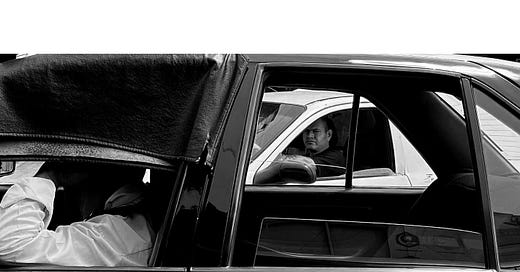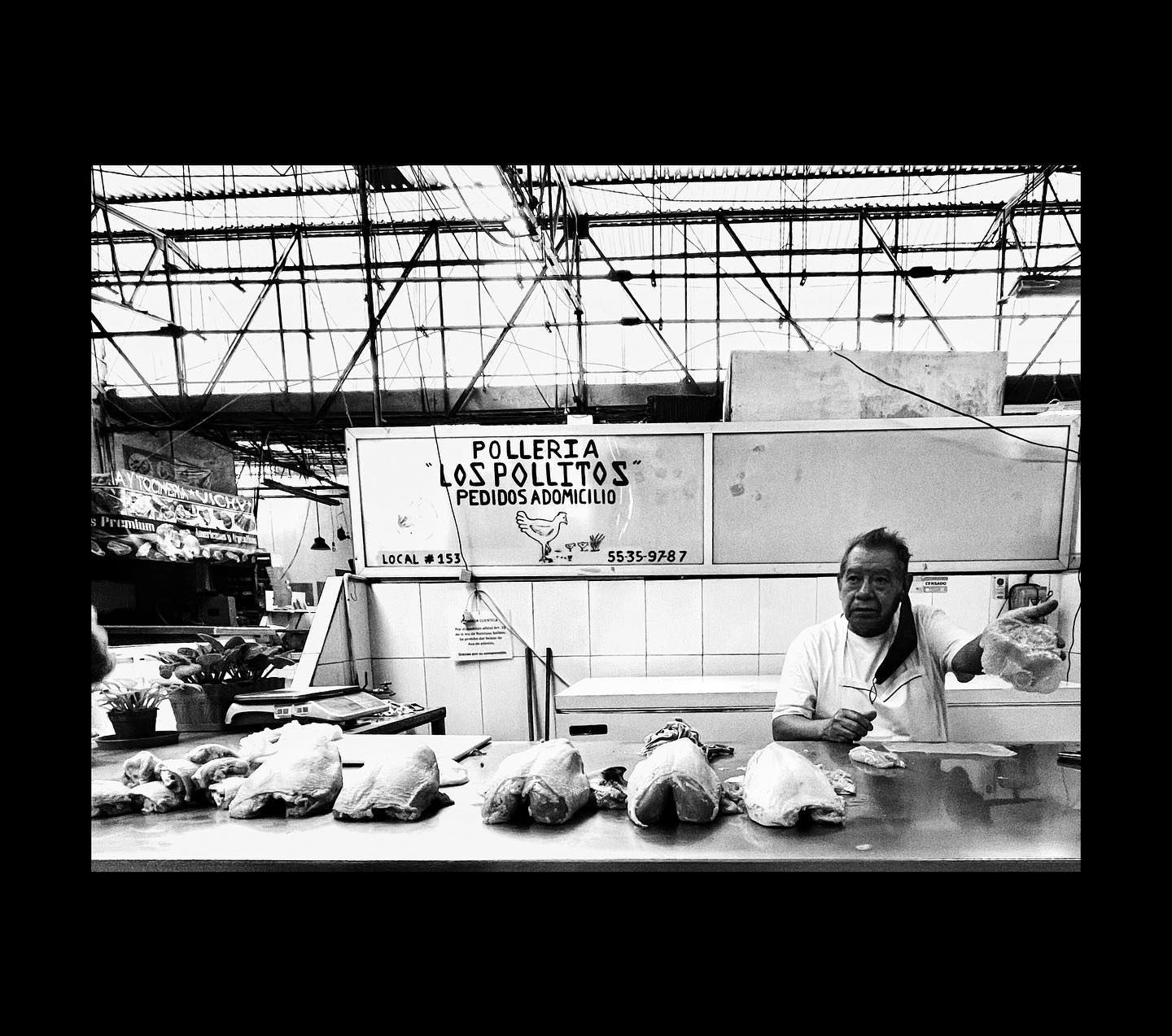🧭 Career Pathfinding: My Photography Career vs. AI - Which Skills Survive and Which Become Obsolete
How AI image generation is forcing photographers to redefine their craft
Through the window of a weathered taxi, a driver's eyes meet mine—or perhaps they're looking past me, into something I can't see.. That moment existed. I was there.
But here's what keeps me awake: I could recreate this scene now without leaving my desk. A few prompts about vintage taxis, urban geometry, the interplay of reflection and human expression. The AI would deliver something remarkably close, perhaps even more "perfect" in its composition.
From Streets to Algorithms
Black and white street photography became my language in Mexico City's chaos. Every frame cost something. Film wasn't cheap. Each shot required intention, patience, presence.
But as an AI architect, I understand what most photographers haven't grasped: we're not competing with better cameras anymore. We're competing with imagination itself.
Here's what I generated using ImageFX:
The prompt: "Black and white documentary photography, cockfighting scene in urban Latin American street, two roosters in combat, group of men watching from behind concrete wall with graffiti, weathered buildings in background, street sign visible, dramatic shadows and contrast, gritty photojournalistic style, 1970s aesthetic, high contrast monochrome, street photography composition"
The quality depends entirely on prompt engineering - Check @ohneis652 on instagram for masterclass examples - their work proves prompt crafting is now a legitimate artistic skill.
Side note: VPN access opens region-locked tools like Google's ImageFX for international users.
The truth: if AI generates photorealistic images of events that never happened, what defines the value of capturing events that did happen?
Photography documents reality. AI generation creates possibility. Both require artistic vision, but they serve different purposes.
Where Photography Survives
Photography isn't dying—it's pivoting, like painting did when cameras arrived. Painters moved to impressionism and abstraction. Now AI pushes photography toward authenticity.
Photography thrives when:
Journalism requiring verifiable presence
Personal branding valuing genuine experience
Fine art where the photographer's journey matters
Photography struggles:
Social media content prioritizing engagement over truth
Stock photography competing on speed and cost
Marketing visuals focused on emotional impact
The Professional Reality
For photographers, strategic positioning matters:
Develop AI fluency. Understanding AI generation helps to identify opportunities it can't address.
Reframe offerings. Sell experiences and authenticated moments, not just images. Print your photos!
The streets taught me to see light, anticipate moments, understand human behavior. These skills translate directly to prompt engineering and AI direction. What doesn't change: human need for authentic connection and verified reality. In a world of infinite generated possibilities, the photograph saying "I was there, this happened" becomes more precious, not less.
The question isn't whether AI replaces photographers. It's whether photographers evolve with AI - or let it evolve without them.







Me encanta todo lo que escribes, felicidades